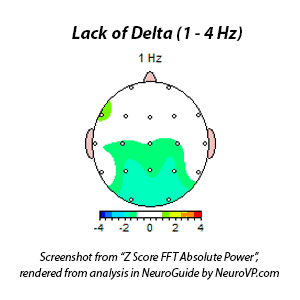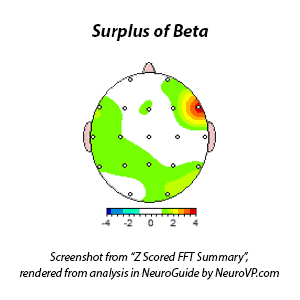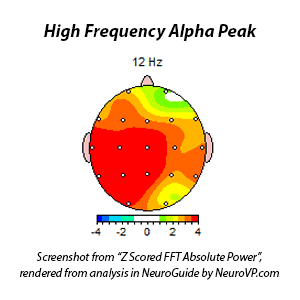Sleep better thanks to Neurofeedback
Neurofeedback can be successfully used to tackle insomnia or sleep problems. With a QEEG analysis of the electrical activity in your brain, we can determine exactly where the problem is located. We listen to your situation, and how you experience insomnia or sleep problems. We put your experiences next to your QEEG, and in this way we can train in a very targeted way.
Scientific but without medication
Neurofeedback is non-invasive; nothing at all is added to your body. In fact, we train to solve your insomnia or sleeping problem. If you are already taking medication against insomnia or to sleep better, neurofeedback can also be used to help you reduce it.
What happens when you close your eyes?
When you come for neurofeedback due to insomnia or sleep problems, an important question is what exactly happens when you close your eyes. We are going to measure the difference between brain activity when you have your eyes open and when you close your eyes. We expect a clearly visible difference on your QEEG in which the brain becomes calmer when you close your eyes.







